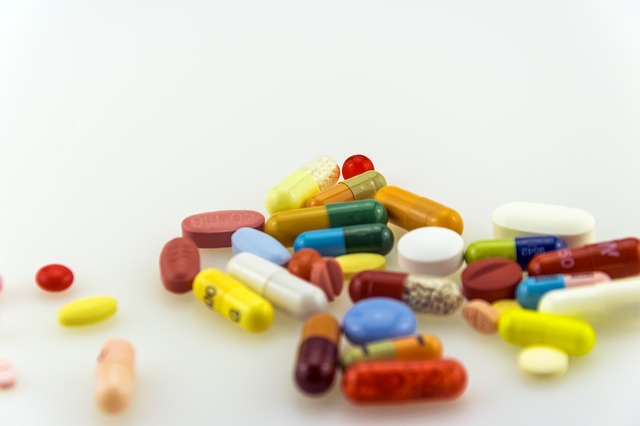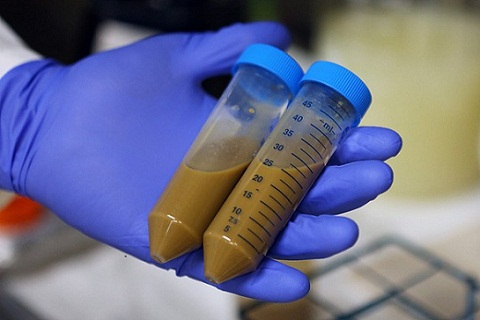When NOT to Take Probiotics – Reduce Risks
Live cultures of microbes that are healthy for your gut’s microbiome known as probiotics are typically healthy and helpful to take at all times for all ages in all circumstances. Whether you’re a man, woman, adult, child, dog, cat, anything! Probiotics are almost always good. However, there are some very specific circumstances when you should NOT take probiotics without first speaking to your doctor or another medical professional.
Typically, probiotics are advised against when they may be contraindicated with either a medical condition or another drug.
So what is a contraindication?
A contraindication is a specific situation or medical condition in which a drug, procedure, or even surgery should not be used because it may be harmful to the patient.
What medical conditions may be contraindicated with live cultures?
Live cultures and probiotics are never recommended for those with serious medical conditions such as those who are extremely immunosuppressed, have pancreatitis, are currently in the ICU, have malaena, have a central venous catheter, infants with short bowl syndrome, or patients who have open wounds following surgery.
On top of that, women who are pregnant or breastfeeding should always consult a doctor before taking certain probiotics and live cultures.
What are the drugs or supplement with which live cultures and probiotics may be contraindicated?
At present, there are no known contraindications with medical drugs or supplements, however, there are some things you should definitely consider when taking probiotics with certain medications or supplements.
- If taking probiotic bacteria along with antibiotics you will want to take them separately, ideally several hours apart, unless you have been specially told to take them together with antibiotics. For more information on whether or not you should take probiotics when on specific medication, always contact your doctor or medical provider.
- If you are taking anti-fungal medication, or natural supplements with anti-fungal properties, you may want to stop taking any probiotics or wait until you are off the anti-fungal until you begin.
- Additionally, if you are taking immunosuppressant medication, then you should absolutely speak with your doctor before you begin taking probiotics.
The reason why you should not take probiotics if you are severely immunocompromised or immunosuppressed is because patients who are do not have the ability to mount an appropriate body response to any microbe that they come in contact with. specialized cells in the intestine (they’re called M Cells and Peyers patches) are continually testing and sampling the intestinal lumen for antigens (either food or microbes). Microbes, even the ones that are normally neutral or even considered beneficial to your body, can sometimes cross the gut barrier and grow in the blood or in the internal organs where the nutrients are high and the competition for nutrients is low.
Microbial growth in these areas can cause septicemia, fugemia, abscesses, my0-endocarditis (an infection of the heart), or pancreatitis.
On the other hand, there may actually be a benefit in taking live culture probiotics for patients with severely immunosuppressed patients, but the risk is typically considered to be far too high in most circumstances. Because there is currently not enough clinical evidence ealing with this topic, medical professionals rarely recommend such patients to begin taking live cultures.
Probiotics can be an incredibly helpful and healthy thing to add to your daily diet and can make a load of difference if you are looking to improve your gut microbiome and your digestive system. That being said, it is crucially important to know when and if you are at risk of either becoming sick from taking probiotics, or not getting the full benefits of taking probiotics due to some medicine you are taking or treatment you are undergoing.
So what can I do when I can’t take live cultures?
This can be a frustrating situation to be in. You want to be your most healthy self possible, but the medication you are taking or treatment you are undergoing is making that impossible. Luckily, there are still great ways to try and maintain your health despite what kind of medication your are currently taking. Of course, it is important to consider your doctor before making any major changes.
Probiotics and Sepsis
Cancer treatment, including radiation and chemical treatment very often lead to diarrhea, it’s a major contributor to the fatigue and other debilitating side effects that come with popular cancer treatment. Because probiotics are well-known to help cure diarrhea, people often ask if probiotic supplements can be used during chemotherapy radiation, and more.
In a recent study done by researchers in the UK, professionals assessed the risk that may come with ingesting probiotics while treating cancer.
The results showed that probiotics may reduce severity of diarrhea in cancer patients, and reduce frequency of diarrhea in cancer patients. But that doesn’t mean it was all positive.
When looking at the safety of ingesting probiotics, 17 studies with 1530 patients were analyzed. Five studies showed evidence of bacteraemia/fungaemia/positive blood cultures related to probiotic use. To put it bluntly, that means tests revealed the possibility of sepsis as a result of taking probiotics while undergoing cancer treatment.
Sepsis can range from mild discomfort to seriously deadly. Here are some well-known symptoms:
- Mild sepsis can include high or low body temperature along with an increased hear rate and respiratory rate along with infection. At these stages it is typically quite treatable.
- Severe sepsis can lead to signs of organ failure such as reduced urine production, difficulty breathing, decreased platelet count or abdominal pain. If blood pressure drops uncontrollably, a patient is at serious risk of septic shock, which can lead to death.
While these outcomes are rare, the dangers of taking probiotics must be considered when using medications. It is interesting to consider that when the gut needs a healthy microbiome most, that very microbiome can lead to alternative and additional bacteria in the body.
A person’s health is one of the most important things in their life. Not only does it let you enjoy life to the fullest, it also allows you live as long as possible. While probiotics can help you do that in the long run, it is important to consider the times when it is best to let your body fight a major illness and get back on track.




